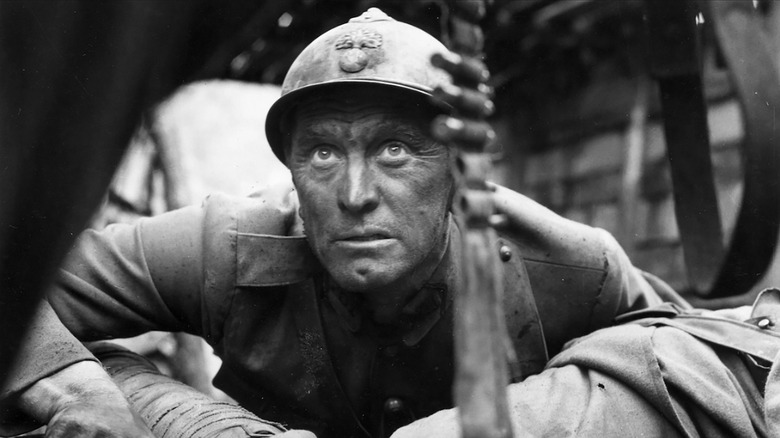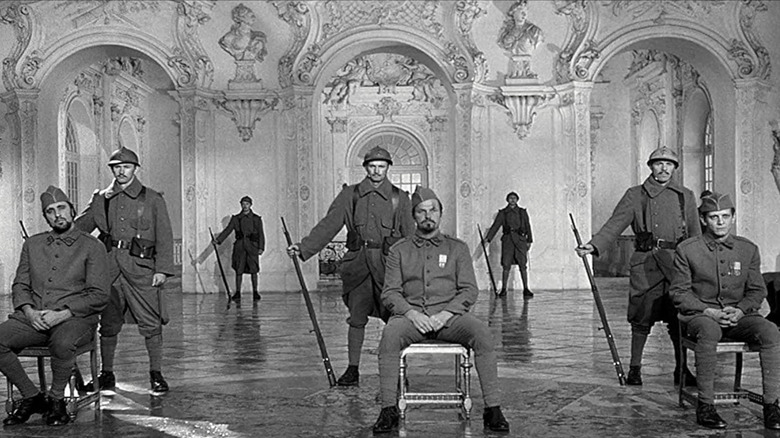Why The Kirk Douglas Movie Paths Of Glory Was Banned In Several Countries
There will always be an appetite for movies about World War II. It's a classic story of good versus evil, which is obviously reductive of actual history, but when has Hollywood ever cared about that? World War I, on the other hand, provides no easy narratives. It is, to put it simply, a war about nothing. The great powers of the early 20th century had an arsenal of shiny new toys, and the assassination of Archduke Franz Ferdinand ignited a powder keg of international tension and unleashed their weapons of mass destruction.
There are no good guys and bad guys in World War I, with soldiers and citizens alike caught in the middle of a petty squabble between their nationalist leaders. It's not surprising then that there are fewer World War I movies. The few we have received over the last couple of years, like "All Quiet on the Western Front" and "1917," are short on heroics and are closer to a horror movie than your typical war film.
One of the best entries in the catalogue of World War I films is Stanley Kubrick's 1957 film "Paths of Glory." The picture follows Kirk Douglas' Colonel Dax serving in the French army as he is tasked with leading his men on a suicide mission, his bosses know is destined to fail. He follows his order, trusting in the chain of command, but in the chaos of the battle, his men understandably turn back from certain death. Rather than accept blame for the failure, the General in charge of the operation blames the men's supposed cowardice and orders three men, chosen at random as representatives of the entire squad, to be court-martialed and executed.
This was all based on a true story, but Kubrick's starkly realized vision proved to be too real for some of the powers that be, and "Paths of Glory" found itself banned in several countries.
Claims of being 'Anti-Military' led to bans on 'Paths of Glory'
By the time the credits roll on "Paths of Glory," the accused cowards are executed, and the bosses actually responsible for the failure receive nothing more than a slap on the wrist. This dark, unhappy ending left audiences stunned and received critical acclaim upon release, but it didn't help the film find any fans in the halls of power.
Deemed a provocatively anti-military film by governments around the world, "Paths of Glory" unsurprisingly provoked the biggest controversy in France. Defenders both within and outside the French military decried the film's depiction of French generals, and the French government pressured the film's european distributor to not release the film. It wouldn't screen in France until 1975, a delay of 18 years.
The German and Swiss governments followed France's lead and delayed the film, with Germany delaying it for two years to try and curry favor with France, while the Swiss government banned the film until 1970. The United States military also banned the film across all its military bases, both at home and overseas, perhaps to prevent their troops from questioning their leader's decisions. The fascist dictatorship of Spain's General Francisco Franco instituted the film's longest ban, preventing "Paths of Glory" from screening in Spain until 1986, 19 years later and 11 years after Franco's death.
Despite their best efforts, "Paths of Glory" lives on, inspiring countless filmmakers and one of the best TV shows of all time. And nearly 20 years after their wrongful executions, the men who inspired the film were posthumously exonerated by the French government. It might be too little, too late, but it's certainly the least they could do to honor their sacrifice.

